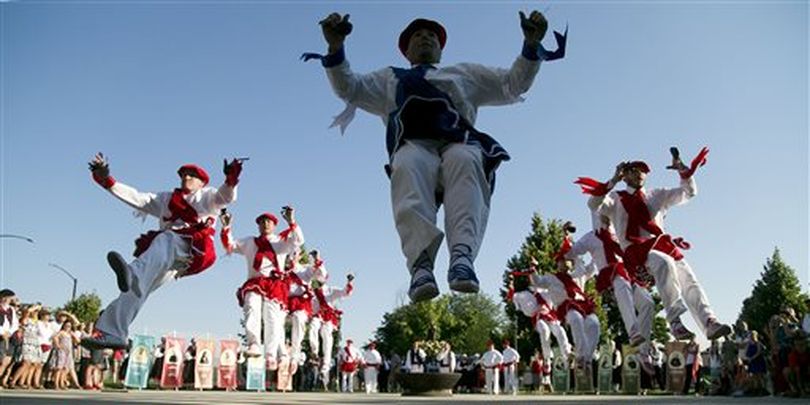‘Basque values are plural’

Idaho has 7,900 residents who claim Basque heritage, 2,000 of them in Boise. Those numbers are self-reported on government surveys, so the actual Basque population could be much greater. What Idaho Basques lack in raw numbers, they more than make up for in concentration, visibility and distinctiveness, writes Idaho Statesman reporter Bill Dentzer. Basques began arriving here more than a century ago, flourishing as they integrated themselves into civic and social life while preserving their heritage and cultural identity. Their strong and unique presence made Boise a natural pick for the first Jaialdi festival in 1987, and for those that have followed every five years since 1990.
“What we do have is a very concentrated, more recent immigration that is very visible and vocal,” said Gloria Totoricaguena, a second-generation Boise Basque and scholar who did her doctoral dissertation on what is known as the Basque diaspora. She’s written seven books on Basques.
Former Idaho Secretary of State Ben Ysursa, whose grandparents were first-generation arrivals here, said there was a strong sense of community among the Basques living here, as captured in stories his predecessor Pete Cenarrusa shared. “Pete always thought the fact that Basques usually took care of their own problems internally, that the local communities had no problem having a celebration with Basques,” Ysursa said. “They respect the community and the mores of the community, and worked hard. The perception was that Basques will take care of themselves. You don’t have to worry about them.”
And indeed, Basques did take care of themselves – from the boarding houses where recent immigrants started new lives and sheepherders found a respite from their isolated lives to the Basque Mutual Aid societies that were formed to provide community assistance.
“Basque society in the homeland is very much about you and your neighbor,” Totoricaguena said. “Civil rights or political rights are not given to an individual; they’re given to a community. … Basque values are plural, and so that affects their integration into their community.” You can read Dentzer’s full story online here.
